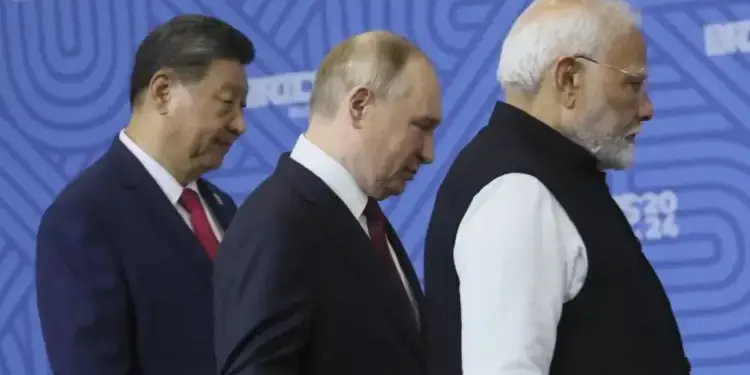At the Summit of the Brics in Kazan, Vladimir Putin found himself in a delicate situation, faced with the calls of his partners with a peaceful resolution of the conflict in Ukraine. This meeting, the most important held in Russia since the start of the invasion in 2022, highlighted the differences within the Alliance.
The Chinese president, Xi Jinping, although linked to Moscow by a partnership qualified as “limitless”, launched a clear message against the climbing of the fighting. He insisted on three fundamental principles: avoid expansion of the conflict, brake violence and not fuel tensions. For his part, the Brazilian president, Luiz Inacio Lula da Silva, called for negotiation to prevent climbing, while the Indian Prime Minister, Narendra Modi, underlined the need for dialogue and diplomacy, rather than war.
According to the Ukrainian Ministry of Foreign Affairs, this meeting revealed that, despite the intentions of Moscow, an international majority still supports Ukraine in its quest for sustainable and fair peace.
The event, which brings together around twenty heads of state, testifies to the difficulties for Russia to obtain unconditional support within the BRICS. Created in 2009, this group, which now includes members such as South Africa, Egypt and Iran, reflects global ambitions but also internal friction.
The BRICS, a growing attraction
The BRICS summit, organized this year by Russia, is of particular importance, especially for African countries. The recent membership of Egypt and Ethiopia, as well as the participation of South Africa, illustrates an increasing desire to emancipate themselves from the institutions dominated by the West. For Vladimir Putin, this rally represents an opportunity to prove that Russia is not isolated despite the sanctions.
The Russian president has announced that more than 30 countries wish to join the BRICS, a figure that reflects the growing attraction of this coalition for nations seeking to free themselves from Western influence.
Climbing international tensions
In parallel, the United States has warned that any North Korean military presence in Ukraine would be considered a legitimate target. Reports have mentioned the sending of North Korean soldiers to support the Russian war effort, a gesture which, according to the West, could further intensify the conflict. Tensions have also increased on the side of Romania, which detected alleged drones violating its airspace, aggravating concerns about regional security.








